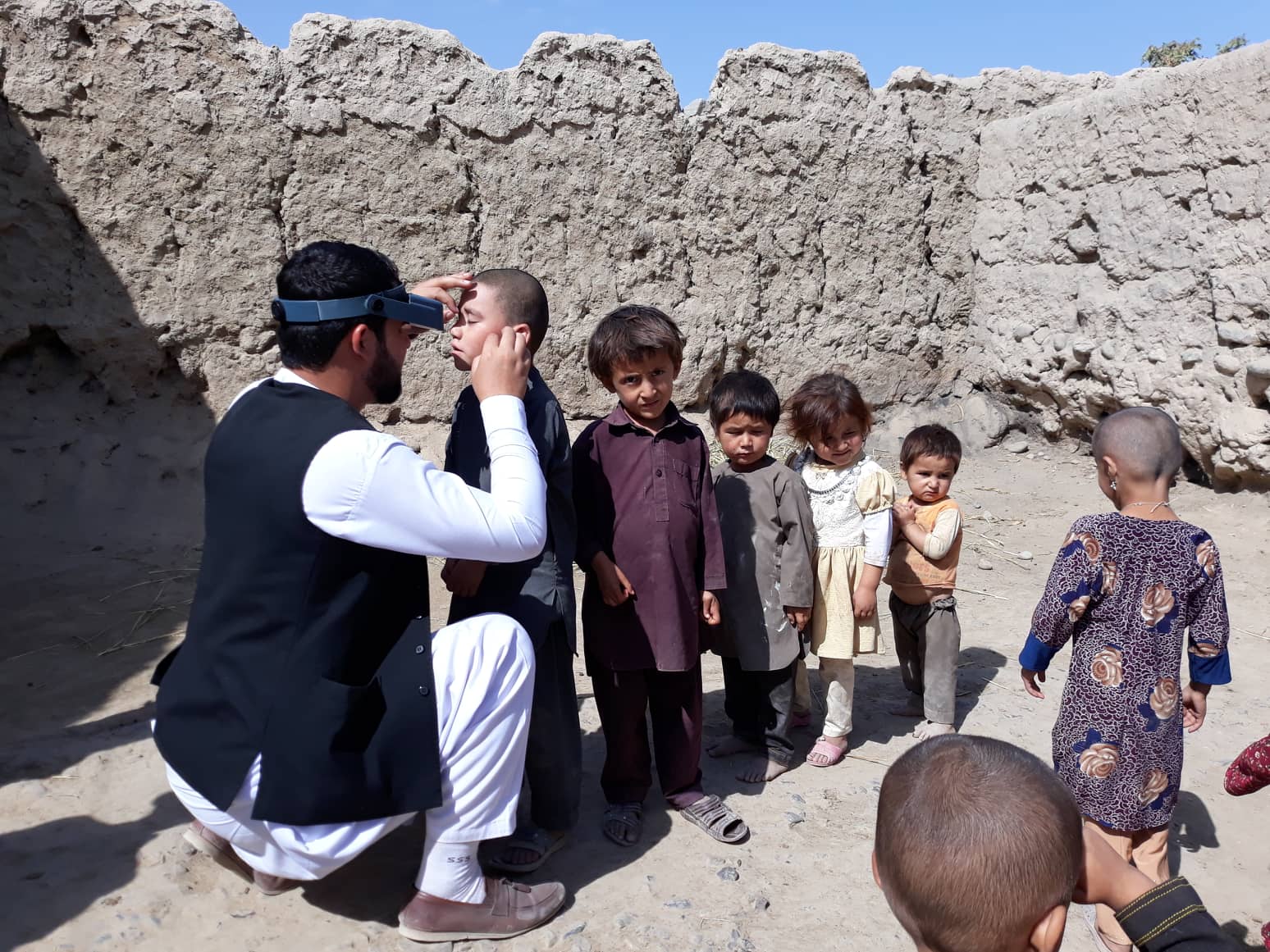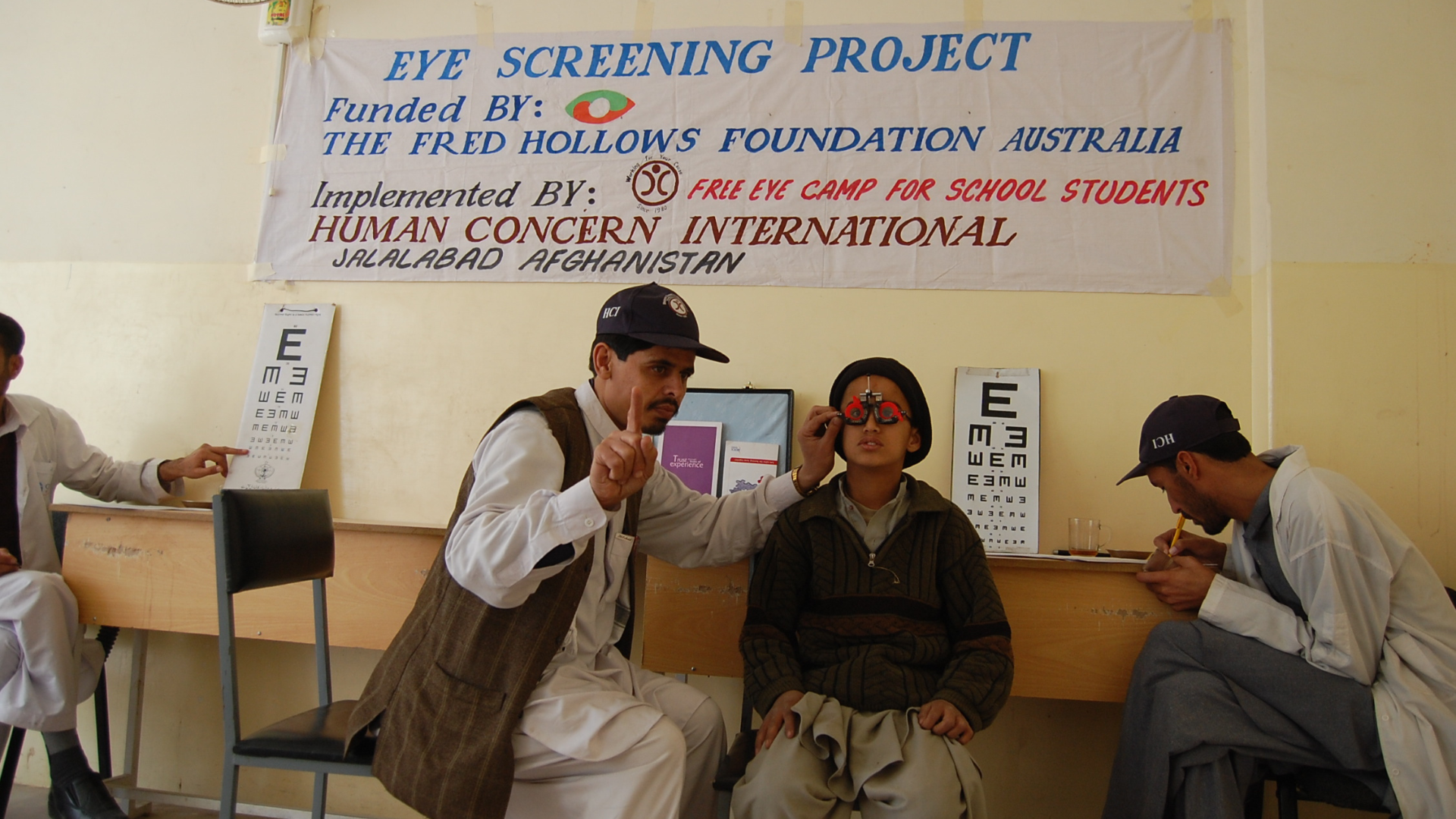Our work in Afghanistan
Nearly 600,000 people in Afghanistan are blind and 1.5 million people are living with some form of visual impairment.
Cataract remains the leading cause of avoidable blindness, representing 60% of all cases of vision loss. Other causes include refractive error, trachoma, glaucoma, and trauma.
Although more than 90% of blindness is avoidable for people in Afghanistan, many people can’t access the treatment they need. Vulnerable people face barriers to access eye health services.
- 36.8% of all blindness in Afghanistan is caused by cataract
- More than 600,000 people are blind
- More than 1.5 million people have visual impairment
- Cataract is the leading cause of blindness in Afghanistan
- 8 districts in Afghanistan were identified as suspected trachoma endemic areas
These barriers include workforce shortages, poor infrastructure, long distances, lack of transport, financial constraints, security, and lack of awareness.
Only nine provinces have an established provincial eye health care centre, leaving up to 74% of provinces without access to eye care centres. As a result, up to 200,000 patients are waiting to receive cataract surgery.
Since 2006, The Fred Hollows Foundation has been restoring sight in Afghanistan. The Foundation has screened more 700,000 people and performed more than 50,000 eye operations and treatments over the past 10 years.

In 2024, The Foundation and its partners made great progress in key strategic areas in South Asia and the Middle East:
1,044,706
People screened.
163,853
Eye operations and treatments performed including 100,263 cataract operations, 4,849 diabetic retinopathy treatments and 58,741 other sight saving or improving interventions.
66,729
Pairs of glasses distributed.
7,581
People trained including community health workers, surgeons, clinic support staff and teachers.
235,608
School children and community members educated in eye health and sanitation.
243
Facilities built, equipped or renovated.
The countries in South Asia and the Middle East that The Foundation works in are Pakistan, Bangladesh, Myanmar, Nepal, the Occupied Palestinian Territories, Jordan and Afghanistan.
